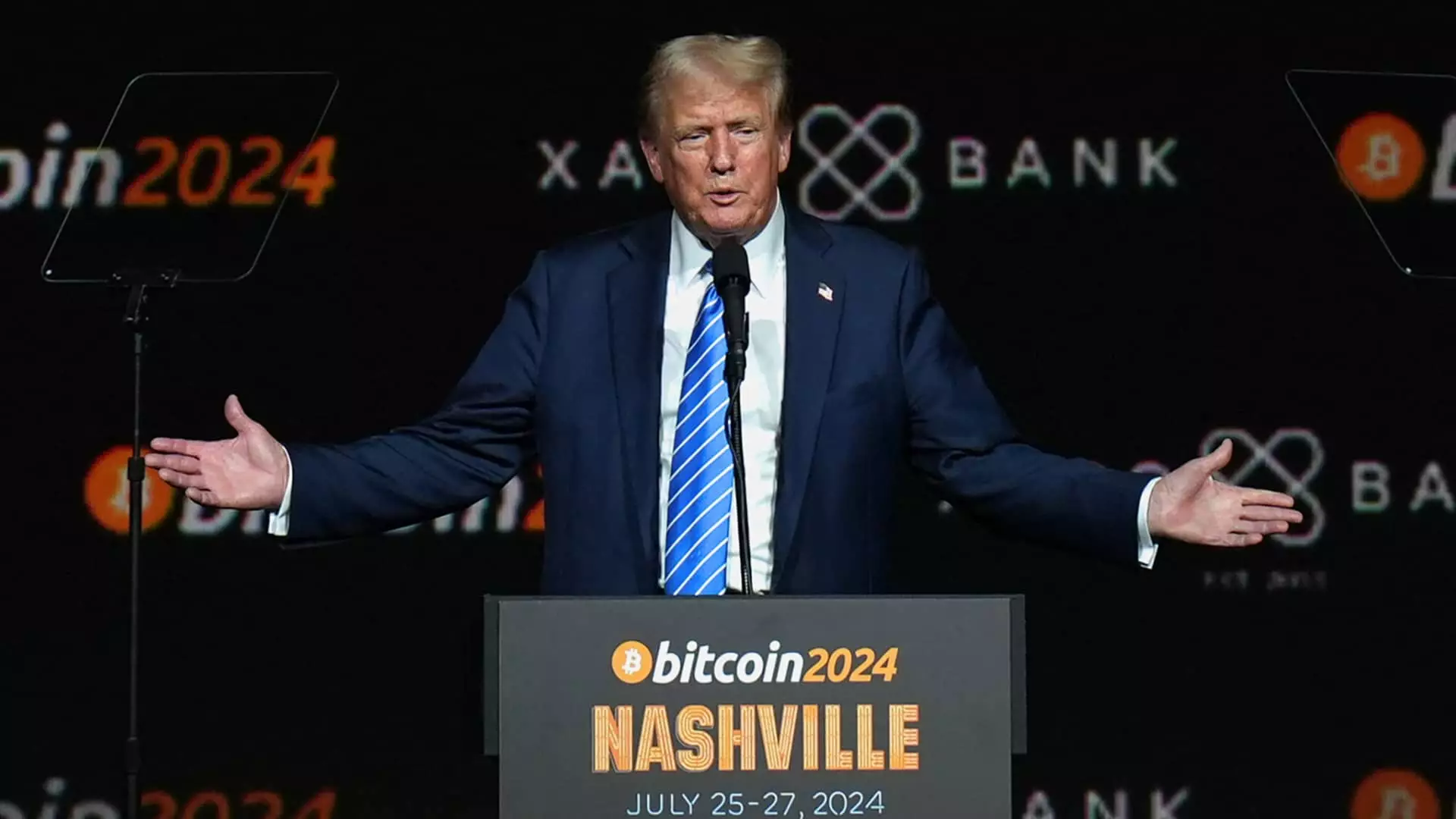The launch of World Liberty Financial (WLF), spearheaded by Donald Trump and his family, introduces a novel dimension to cryptocurrency within the political landscape, claiming to bridge the gap between traditional finance and the decentralized finance (DeFi) model. The recent release of their “World Liberty Gold Paper” offers insights into the project’s mission, token allocation, and revenue distribution, raising questions about the ethical implications and logistical realities of such a venture.
As cryptocurrency continues to gain traction globally, its entwining with politics presents a controversial tapestry. Trump’s crypto venture, initially branded as “The DeFiant Ones,” capitalizes on the growing enthusiasm for decentralized finance. The paper reveals a staggering allocation of 22.5 billion “$WLFI” tokens for the Trump family, valued at approximately $337.5 million. This staggering figure instantly raises eyebrows about the motivations driving the project—are they genuinely aiming to innovate financial systems, or is this primarily a financially lucrative undertaking for Trump and his family?
The project’s launch coincides with a pivotal election cycle, where the former president finds himself neck-and-neck with current Vice President Kamala Harris. This backdrop puts the crypto project in a politically charged context. Trump touts the venture as a means to transform financial systems, but one must consider the underlying divergence between genuine innovation and shameless self-enrichment.
World Liberty Financial’s revenue structure, as described in its documentation, details that 75% of net protocol revenues would go to a Delaware-based entity tied to Trump, essentially allowing the Trump family to significantly profit from this venture. This structure raises ethical questions regarding the separation of political aspirations from profit motives. A project marketed to the public as benevolent may merely serve as a personal financial conduit for those at the helm.
Moreover, the claim that Trump and his family bear no liability while standing to gain significant revenues poses questions about accountability and transparency. The document emphasizes that none of the Trump family members hold any formal positions within WLF, a strategic decision that could legally absolve them from economic repercussions while still enabling personal profit.
The lack of clarification on how token allocation involves the Trump family while making claims of neutrality could indicate potential risks for investors. If the leadership and financial structuring appear convoluted, trust in the project’s integrity may dissipate, complicating WLF’s legitimacy in the burgeoning crypto market.
Despite lofty aspirations to raise $300 million at a $1.5 billion valuation during its initial token sale, the reality falls short; only $12.9 million worth of tokens have been sold as of the document’s release. This stark contrast illustrates a familiar challenge within new cryptocurrency initiatives: the balance of ambition and market acceptance. Many projects fail to garner interest in the face of practical realities, leading to questions about whether the optimism embedded in the project’s vision is justified.
Furthermore, WLF’s roadmap indicates a considerable dependency on the success of its token sale to establish financial credibility and operational viability. Such dependency is often indicative of vulnerability, posing risks to investors should the anticipated influx of capital not materialize.
The long-term outlook for the World Liberty Financial project remains uncertain. While it presents an innovative concept anchored in the principle of decentralization, the project’s governance structure, potential profit-driven motives, and failure to inspire overwhelming investor confidence create a precarious situation. The intertwining of cryptocurrency with political figures, especially one as polarizing as Donald Trump, invites skepticism and critical discourse.
The evolving landscape of cryptocurrency will undoubtedly continue to cast a shadow over WLF’s initiatives. As investors and the general public critically evaluate its authenticity, the project’s ability to balance innovation, profit motives, and ethical considerations will ultimately determine its sustainability and success.
While World Liberty Financial aims to stand at the frontier of cryptocurrency, the intricacies of its operational objectives, political affiliations, and foundational frameworks call for a prudent appraisal from potential investors. Decoupling the crypto movement from traditional finance should foster a community-focused ethos, but the underlying motives behind WLF illustrate that deeper scrutiny is essential in discerning authentic contributions from opportunistic ventures within the financial revolution.

